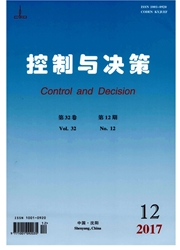

 中文摘要:
中文摘要:
基于微分博弈,研究由一个供应商与一个制造商组成的低碳供应链中纵向合作减排的动态优化问题.构建了以制造商占主导、供应商跟随的stackelberg微分博弈模型,分别得到了制造商和供应商的最优反馈均衡策略及各自的利润最优值函数,推导出产品碳排放量随时间变化的最优轨迹.通过数值算例分析了制造商和供应商的长期合作减排策略对产品碳排放量的影响,为供应链上下游企业开展长期减排合作提供了理论依据.
 英文摘要:
英文摘要:
Dynamic optimization about vertical cooperation on carbon emissions reduction is discussed based on the differential game in a low-carbon supply chain consisting of a single supplier and a single manufacturer. Stackelberg differential game models are built under a supply chain in which the manufacturer is a leader and the supplier is a follower. The optimal feedback equilibrium strategy with long-term cooperation of the supplier and the manufacturer about reducing emissions and their own optimal value function of profits can be obtained respectively, and the optimal trajectory of products' carbon emissions also can be found. Finally, through a numerical example, it is analyzed how the long-term cooperation strategies on carbon emissions reduction of manufacturer and supplier affect the carbon emissions of product, and the theoretical basis is provided for long-term emissions reduction vertical cooperation in supply chain.
 同期刊论文项目
同期刊论文项目
 同项目期刊论文
同项目期刊论文
 期刊信息
期刊信息
